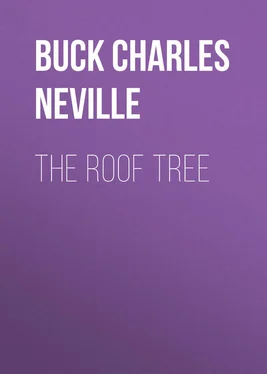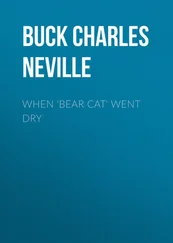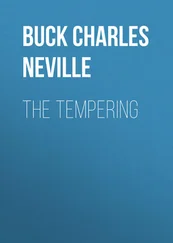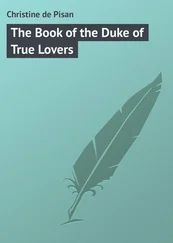Charles Buck - The Roof Tree
Здесь есть возможность читать онлайн «Charles Buck - The Roof Tree» — ознакомительный отрывок электронной книги совершенно бесплатно, а после прочтения отрывка купить полную версию. В некоторых случаях можно слушать аудио, скачать через торрент в формате fb2 и присутствует краткое содержание. Жанр: foreign_prose, foreign_antique, foreign_language, на английском языке. Описание произведения, (предисловие) а так же отзывы посетителей доступны на портале библиотеки ЛибКат.
- Название:The Roof Tree
- Автор:
- Жанр:
- Год:неизвестен
- ISBN:нет данных
- Рейтинг книги:3 / 5. Голосов: 1
-
Избранное:Добавить в избранное
- Отзывы:
-
Ваша оценка:
- 60
- 1
- 2
- 3
- 4
- 5
The Roof Tree: краткое содержание, описание и аннотация
Предлагаем к чтению аннотацию, описание, краткое содержание или предисловие (зависит от того, что написал сам автор книги «The Roof Tree»). Если вы не нашли необходимую информацию о книге — напишите в комментариях, мы постараемся отыскать её.
The Roof Tree — читать онлайн ознакомительный отрывок
Ниже представлен текст книги, разбитый по страницам. Система сохранения места последней прочитанной страницы, позволяет с удобством читать онлайн бесплатно книгу «The Roof Tree», без необходимости каждый раз заново искать на чём Вы остановились. Поставьте закладку, и сможете в любой момент перейти на страницу, на которой закончили чтение.
Интервал:
Закладка:
The other shadowy and hunched figure growled unpleasantly, then bit from a tobacco twist and spat before he answered.
"I hain't got no hankerin' fer no more laywayin's," he objected. "Ef ye resolves that he needs killin', why don't ye do hit yoreself? Hit hain't nothin' ter me."
"I've done told ye why I kain't handily do hit myself. Nobody hain't ergoin'ter suspicion you – an' es fer what's in hit fer ye – ef so be I calls on ye – we've done sottled that."
The other remained churlishly silent for awhile. Palpably he had little stomach for this jackal task and it was equally obvious that he feared refusal even more than acceptance of the stewardship.
"Hit hain't like as if I was seekin' ter fo'ce ye ter do suthin' ye hedn't done afore," the persuasive voice reminded him, and again the snarling response growled out its displeasure.
"No, an' ye hain't said nothin' cons'arnin' what ye knows erbout me, nuther. Ye hain't even drapped a hint thet any time ye takes ther notion ter talk out ter ther High-cote ye kin penitenshery me – but thet's jest because ye knows ye don't haf ter. By God, sometimes I think's hit would well-nigh profit me ter layway you an' be shet of ye."
The second voice was purring now, with a hint of the claw-power under the softness.
"Thet would be a right smart pity, though. Thar is one other body thet knows – an' ef so be I got kilt he'd be right speedy ter guess ther man thet done hit – an' ther reason, too. I reckon hit'll profit ye better ter go on bein' friends with me."
Again long silence, then grudgingly the murderer-elect rose to his feet and nodded reluctant assent.
"So be it," he grumbled. "I gives ye my hand ter deaden him whensoever ye says ther word. But afore we parts company let's talk ther matter over a leetle more. I wouldn't love ter hev ye censure me for makin' no error."
"Ther main thing," came the instruction of the employer, "air this: I wants ter be able ter get ye quick an' hev ye ack quick – ef so be I needs ye, no matter when that be."
CHAPTER VII
When Cal Maggard closed and locked his cabin door late the next afternoon he stood regarding with sombre eyes his message of defiance which, it seemed, no one had come to read.
Yet, as he turned his back a smile replaced the scowl, for he was going to see a girl.
At the bend where the trail crossed the shallow creek, and a stray razor-back wallowed at the roadside, Maggard saw a figure leaning indolently against the fence.
"I suspicioned ye'd be right likely ter happen along erbout this time," enlightened Bas Rowlett as he waved his hand in greeting. "So I 'lowed I'd tarry an' santer along with ye."
"I'm beholden ter ye," responded Maggard, but he knew what the other had been too polite to say: That this pretended casualness marked the kindly motive of affording escort because of the danger under which he himself was travelling unfamiliar roads.
Over the crests heavy banks of clouds were settling in ominous piles of blackness and lying still-heaped in the breathlessness that precedes a tempest, but the sun still shone and Rowlett who was leading the way turned into a forest trail.
As they went, single file, through a gorge into which the sun never struck save from the zenith; where the ferns grew lush and the great leaves of the "cucumber tree" hung motionless, they halted without a word and a comprehending glance shot between them.
When two setters, trained to perfect team work, come unexpectedly upon the quail scent in stubble, that one which first catches the nostril-warning becomes rigid as though a breath had petrified him – and at once his fellow drops to the stiff posture of accord.
So now, as if one hand had pulled two strings, Cal Maggard and Bas Rowlett ceased to be upright animals. The sound of a crackled twig off to the right had come to their ears, and it was a sound that carried the quality of furtiveness.
Instantly they had dropped to their bellies and wriggled snake-like away from the spots where they had stood. Instantly, too, they became almost invisible and two drawn weapons were thrust forward.
There they lay for perhaps two minutes, with ears straining into the silence, neither exaggerating nor under-estimating the menace that might have caused that sound in the underbrush. After a while Rowlett whispered, "What did ye hear?"
"'Peared like ter me," responded Maggard, guardedly, "a twig cracked back thar in ther la'rel."
Rowlett nodded but after a space he rose, shaking his head.
"Ef so be thar's anybody a-layin' back thar in ther bresh, I reckon he's done concluded ter wait twell he gits ye by yourself," he decided. "Let's be santerin' along."
So they went forward until they came to a point where they stood on the unforested patch of a "bald knob." There Rowlett halted again and pointed downward. Beneath them spread the valley with the band of the river winding tenuously through the bottoms of the Harper farm. About that green bowl the first voices of the coming storm were already rumbling with the constant growl of thunder.
"Thar's ther house – and thar's ther big tree in front of hit," said Rowlett. "Ef I owned ther place I'd shorely throw ther axe inter hit afore it drawed a lightnin' bolt down on ther roof."
Cal Maggard, who had known walnuts only growing in the forest, gazed down now with something of wonderment at this one which stood alone. A sense of its spreading magnificence was borne in upon him, and though the simile was foreign to his mind, it seemed as distinct and separate from the thousands of other trees that blended in the leagues of surrounding forestry as might a mounted and sashed field marshal in the centre of an army of common soldiery.
Even in the dark atmosphere of gathering storm its spread of foliage held a living, golden quality of green and its trunk an inky blackness that gave a startling vividness.
He did not know that this tree which grows stiff of head and narrow of shoulder in the woods alters its character when man provides it with a spacious setting, and that it becomes the noblest of our native growths. He did not know that when Ovid wrote of folk in the Golden Age, who lived upon:
Acorns that had fallen
From the towering trees of Jove,
he called acorns what we call nuts, and that it was not the oak but the walnut that he celebrated.
But Maggard did know it had been through the leafage of that splendid tree that he had first glimpsed the girl's face, and he did know that never before had he seen a thing of trunk and branch and leaf that had so impressed him with its stateliness and vital beauty.
If he were master at that house, he thought, he would not cut it down.
"I'm obleeged ter ye fer comin' thus fur with me," he observed, then supplemented drily, "an' still more fer not comin' no further."
The other laughed. "I hain't ergoin' ter 'cumber yore projeck's none ternight," he declared, good-humouredly, then added fairly enough, "but termorrer night I aims ter go sparkin' thar myself – an' I looks ter ye to do as much fer me an' give me a cl'ar road."
Maggard had hardly reached the house when, with all the passionate violence of the hills, the tempest broke. Safe inside, he talked and smoked with the patriarch and his thoughts wandered, as he sat there by the hearth, back to the room from which now and then drifted a fragment of plaintively crooning song.
The stag horns over the fireplace and the flintlock gun that lay across their prongs spoke of days long past, before the deer and bear had been "dogged to death" in the Cumberlands. There were a few pewter pieces, too – and these the visitor knew were found only in houses that went back to revolutionary days.
This, mused Kenneth Thornton, was the best house and the most fertile farm in all the wild surrounding country, and irony crept into his smile with the thought that it was a place he could not enter save under an anonymous threat of death.
Читать дальшеИнтервал:
Закладка:
Похожие книги на «The Roof Tree»
Представляем Вашему вниманию похожие книги на «The Roof Tree» списком для выбора. Мы отобрали схожую по названию и смыслу литературу в надежде предоставить читателям больше вариантов отыскать новые, интересные, ещё непрочитанные произведения.
Обсуждение, отзывы о книге «The Roof Tree» и просто собственные мнения читателей. Оставьте ваши комментарии, напишите, что Вы думаете о произведении, его смысле или главных героях. Укажите что конкретно понравилось, а что нет, и почему Вы так считаете.











